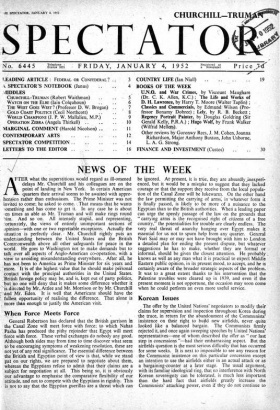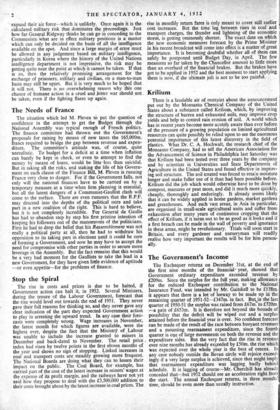Korean Issues
The offer by the United Nations' negotiators to modify their claims for supervision and inspection throughout Korea during the truce, in' return for the abandonment of the Communists' insistence on their right to build new airfields, never quite looked like a balanced bargain. The Communists firmly rejected it, and once again sweeping speeches by United Nations' representatives—one of whom described the offer as " our last step in concessions "—had their embarrassing aspect. But the airfields question is the most serious difficulty that has occurred for some weeks. It is next to impossible to see any reason for the Communist insistence on this particular concession except an intention to use the airfields either in an actual attack or as a bargaining-counter at a later stage. The usual argument, with its familiar ideological ring, that no interference with North Korean sovereignty can be tolerated, is much less important than the hard fact that airfields greatly increase the Communists' attacking power, even if they do not continue to expand their air force—which is unlikely. Once again it is the calculated military risk that dominates the proceedings. Just how far General Ridgway thinks he can go in conceding to the Communists what are in effect military positions is a matter which can only be decided on the basis of all the intelligence available on the spot. And since a large margin of error must be allowed in any judgement based on military intelligence, particularly in Korea where the history of the United Nations intelligence department is not impressive, the risk may be getting quite near the point at which it cannot be taken. If that is so, then the relatively- promising arrangement for the exchange of prisoners, military and civilian, on a man-to-man basis may still be upset. But it is very much to be hoped that it will not. There is no overwhelming reason why this one chance of humane action in a cruel and bitter war should not be taken, even if the fighting flares up again.







































 Previous page
Previous page